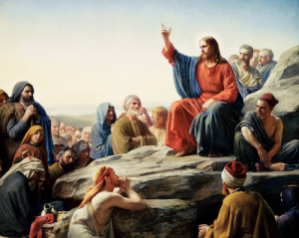This text is an excerpt from an article on the site MusingAboutGod.com.
This text is an excerpt from an article on the site MusingAboutGod.com.
Si se pide a un cristiano, y especialmente a un testigo de Jehová, que presente pruebas de la existencia de Dios, es muy probable que cite el versículo cuatro del tercer capítulo de la carta a los hebreos, "toda casa es construida por alguien, pero el que ha construido todas las cosas es Dios".
El razonamiento puede ser correcto, nada vino de la nada, pero todo en la tierra se debe a la voluntad de un diseñador, es bueno notar que Pablo no estaba tratando de discutir sobre la existencia de un Creador. Habló con sus compañeros cristianos hebreos, quienes ciertamente no cuestionaron el hecho de que el universo estaba gobernado por un ser poderoso que está detrás de todo. Además, en la antigüedad el problema no era ciertamente la no creencia en Dios, sino todo lo contrario: la gente tendía a creer en una multitud de dioses. Además, Pablo, en una ocasión, notó que se había hecho un altar dedicado a un dios desconocido, ciertamente por temor a olvidarse de venerar a una deidad.

Puede utilizar una cuenta de Disqus. Haga clic en el logotipo Disqus y siga las instrucciones.
Puedes comentar como invitado: Haga clic en "I’d rather post as a guest" y siga las instrucciones.
Usted puede utilizar su cuenta de Google, Twitter o Facebook.
Por el momento, los comentarios no son moderados, siempre y cuando se use el sentido común y respeto a las leyes vigentes. Note sin embargo que la moderación puede ser a posteriori.
